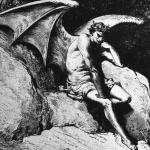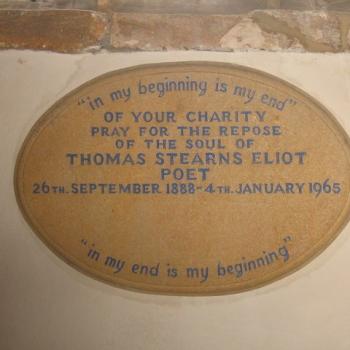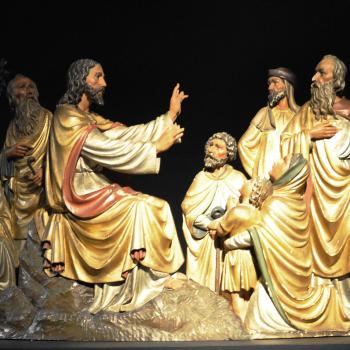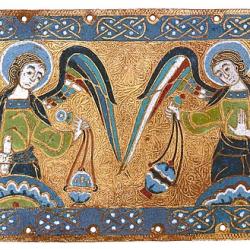
Originally a sermon preached back when Jan & I lived in New England, revisited, dusted off, and lightly rewritten in honor of the 146th anniversary of Emily Dickinson’s death.
1263
Tell all the truth but tell it slant –
Success in Circuit lies
Too bright for our infirm Delight
The Truth’s superb surprise
As Lightning to the Children eased
With explanation kind
The Truth must dazzle gradually
Or every man be blind –
Jan and I treasured our New England years. I vividly recall our walk through the Cambridge cemetery visiting the James family, with a side trip to stand before the great UU theologian James Luther Adams. A similar visit to the poet’s corner at the Concord cemetery, standing with Thoreau and Emerson and many others just thrilled me to the core. Following our first visit to Walden Pond, during those New England years I returned pretty much several times a year to circumambulate the pond and meditate on our tradition and what it can mean. Over time it has come together and blends and makes something lovely about our living here in dear old New England.
Among those places we returned to and have become part of our lives, Jan and I tried to get out to the Pioneer Valley and the Berkshires at least once a year. There’s a lot to experience out there. Although possibly the most moving moment for us was the time we walked through Emily Dickinson’s home in Amherst.
I think of Emily as one of the wise ones.
Think of this as a meditation, a revery.
1755
To make a prairie it takes a clover and one bee —
One clover, and a bee.
And revery.
The revery alone will do,
If bees are few.
Mel Shelly observed, she is as “American as any American poet, and just as complex and just as haunted as Whitman or Emerson, or as her misunderstood soul mates Frost and Sandberg.” In fact I think Dickinson sings into our hearts our uniquely American spiritual quest, and among all the other things about her, is someone we can profitably attend to as a community of liberal faith.
Emily Elizabeth Dickinson was born in December 1830, to a prominent Amherst family. She spent a year at Mount Holyoke under the tutelage of its founder the remarkable Mary Lyons, but could not adjust for many reasons, including the fervent Evangelical Christianity that was constantly preached there, and so returned home after two semesters. Emily traveled very little, a brief stint in Washington with her father during his single term as a US congressman, some time in Cambridge for medical treatment, and not a lot more than that.
Except for a brief interval during her childhood, a time of financial hardship where the family lived in another house in Amherst, Emily lived her entire life in the house where she was born. Much has been made of her propensity to wear white, but no one knows for sure what it actually meant to her. Increasingly reclusive, for her last two decades she rarely left her home even to cross the yard to visit her beloved sister-in-law. Still she had a small circle of friends centering on her sisters and brother and just a couple of others. They would prove invaluable in preserving and presenting her poetry to the world following her death in May 1886.
She wrote her first poem at nineteen. When she died a few months short of fifty-six, Emily had published seven poems, or maybe ten, my sources for this differ. Interestingly of that tiny number whatever it actually was, several were in fact printed without her consent. She did not write for the general public. Nonetheless she was prolific; she was the author of 1,775 known poems as well as about 1,100 letters.
Like many, pretty nearly all poets she wrote in any number of voices. So, it is a dangerous task to pick a few of her poems and to assert they reflect her thinking. But preachers are often willing to go where angels and indeed the prudent fear to tread.
1106
These are the Signs to Nature’s Inns –
Her invitation broad
To whosoever famishing
To taste her mystic Bread –
These are the rites of Nature’s House –
The Hospitality
That opens with an equal width
To Beggar and to Bee
For Sureties of her staunch Estate
Her undecaying Cheer
The Purple in the East is set
And in the North, the Star –
She was baptized into the Congregational church as an infant, but never had that “quickening of the spirit,” the experience of Jesus’ unique saving grace that allowed her full membership in that orthodox Calvinist congregation. Rather, like so many of us in this Meeting House, she found her salvation in nature and the vast expanses of the human mind. Over the years she’s been claimed by many including with some justice our own Unitarian Universalist tradition, our claim to Emily resting on her close association with the Transcendentalist movement. However, she was not strictly speaking a Transcendentalist, as she joined no club or church.
She read Emerson and Thoreau and admired them. Indeed Emerson read her in manuscript, and expressed his own considerable admiration for her thinking as well as her abilities as a poet. Without a doubt she walked in that august crowd of nature mystics at the heart of our way. And, push come to shove, it is hard to describe her theology as anything but Transcendentalist. As I see it.
598
The Brain – is wider than the Sky
For – put them side by side –
The one the other will contain
With ease – and You – beside –
The Brain is deeper than the sea –
For – hold them – Blue to Blue –
The one the other will absorb –
As Sponges – Buckets – do –
The Brain is just the weight of God –
For – Heft them – Pound for Pound –
And they will differ – if they do –
As Syllable from Sound –
Here I feel we find common ground not only with her as a Transcendentalist and therefore a more or less direct spiritual ancestor of ours, but also as a living exemplar of our peculiar, mysterious and beautiful contemporary spirituality.
Here is, I think, the secret of an authentic spiritual way. Our human body, our human mind, if we allow it full, thinking and feeling, its simple mysterious presence; is all we need to know that which saves, that which heals, that which can be called holy. You and I are the gates of the divine. Our eyes the eyes with which God sees. Our hands God’s opportunity to act in this world. You and me, poor, incomplete, stumbling, foolish and grasping, we are the hope of the world. Emily sings that hope, and we, at our best are living it.
Emily’s way into that hope is through fierce honesty. And in doing so she transforms the small into the great, you and me from our foolishness into our sacred potential. Another commentator on Emily’s way, Krystyna Grocolski, suggests that fierce honesty is part of her spiritual tool-kit, which also included “Self-analysis, self-discipline, and self-critique (as) the tools of her search.” All of which we should attend to, so I repeat them: honesty, self-analysis, self-discipline and self-criticism. Here Emily shows us how we can engage in our own search for our true heritage, our natural home. I say this because I believe she found it for herself and points to it for us. Listen to how she deals with death and life, loss and longing, and the whole great mess, the dark and the light intertwining.
355
It was not Death, for I stood up,
And all the dead lie down —
It was not Night, for all the bells
Put out their Tongues for Noon.
It was not Frost, for on my Flesh
I felt Siroccos – crawl —
Nor Fire — for just my marble feet
Could keep a Chancel, cool.
And yet it tasted like them all,
The Figures I have seen
Set orderly for Burial,
Reminded me of mine —
As if my life were shaven
And fitted to a frame,
And could not breathe without a key;
And ‘twas like Midnight, some —
When everything that ticked — has stopped
And space stares — all around —
Or grisly frosts — first Autumn morns,
Repeal the Beating Ground —
But most like Chaos – stopless – cool —
Without a chance, or spar —
Or even a Report of Land —
To justify — Despair.
As Emily sings to us,
Not “Revelation” – ‘tis – that waits,
But our unfurnished eyes –
I have no doubt Emily found those unfurnished eyes. And because of that she can be our teacher on our own quest. This is a quest for the authentic, for the real, for the sacred ordinary.
Her last written words appear to be in a note composed just before she slipped into a terminal coma: “Called back.” I suggest her whole life was a calling back to our true home, calling back to our true joy. And, dear sister Emily, our teacher calls us back, calls us over the ages and generations to that same home, that same joy.
May each of us seek it.
And may each of us find it.













